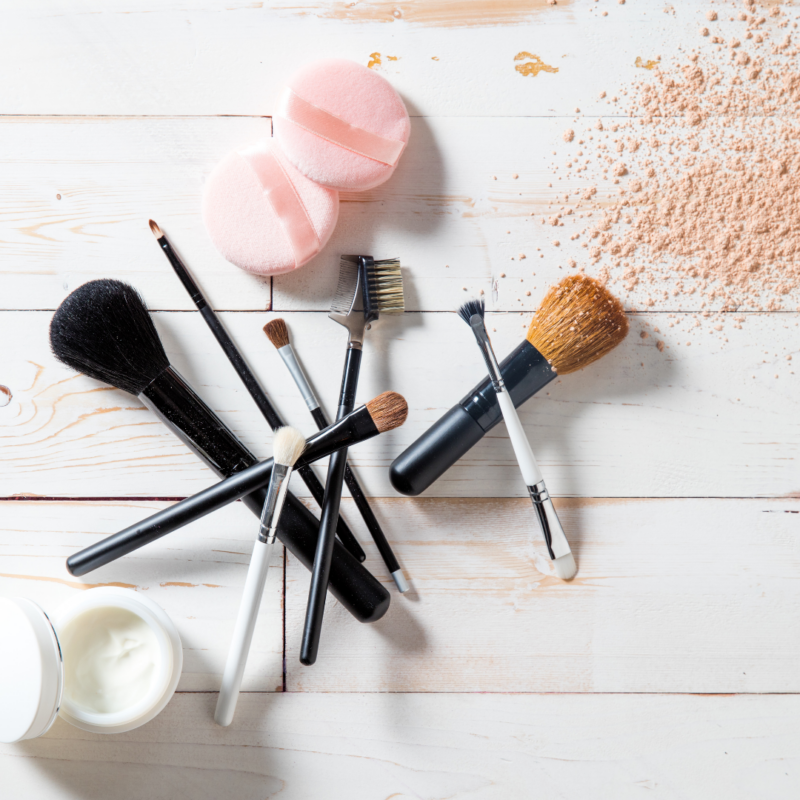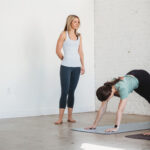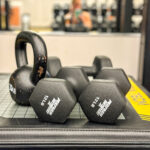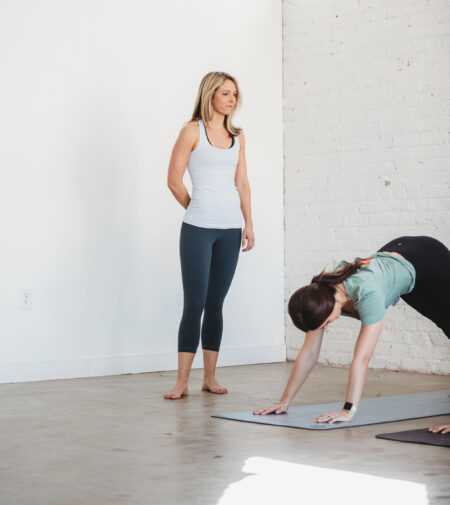Your bathroom, makeup drawer, and even shower is likely full of simple products you use almost daily. Things like your makeup brushes and sponges, tweezers, nail clippers, toothbrush, and shower sponge or loofah get a lot of use on your skin and are often stored wet or in bacteria-filled areas. So how likely is it that you’re using one or more of these items for far too long without replacing it or properly sanitizing it?
Here’s a breakdown of how long these handy health and beauty tools really last–and how to care for them so they’re not affecting your skin, mouth, or nail health.
Makeup Brushes and Blending Sponges
When it comes to items like these that touch your face on a daily or almost daily basis, the first mistake you might be making is not cleaning your brushes often enough or properly. Anything you use heavily for foundation or powder should likely be deep cleaned every week, and probably more often for things like blending sponges. Other lesser-used brushes like eyeshadow or blush brushes should be cleaned every couple weeks at least. If you don’t clean them, you risk bacteria build-up that will cause skin irritation or breakouts, and you’re likely to get an uneven, far-from-smooth makeup application with brushes that are caked with product.
As for when they need to be replaced altogether, this depends a bit on how much use they get and the type of brush. Blending sponges will last a few months, while other studier brushes could last longer. But if you’ve had makeup brushes in your cabinet for years, it’s time to upgrade and replace. You can also tell it’s time to move on if your brush doesn’t go back to its normal shape after cleaning, if it starts to feel stiff on your skin, or if it ever has any sort of odd odor. Move on!
Tweezers, Nail Clippers, and Eyelash Curlers
Metal grooming items like these will naturally last longer before needing to be totally trashed and replaced, but they have just as much need for regular disinfecting and cleaning, as these items go near vulnerable parts of your body like your eyes and nails, and can hold onto harmful bacteria for long periods of time.
To clean items like these, grab some rubbing alcohol, antibacterial soap and a little scrub brush. Dip the brush in the alcohol, then rub a bit of soap onto it, then thoroughly clean the item. Let them dry completely on a clean towel before storing. As for when to part with these items, that’s more about when they stop doing their job properly. If the blades are dull or the tweezers are becoming inflexible, or the eyelash curler is worn out, you know it’s time to grab a replacement. And if any of them are every rusty, replace immediately!
Toothbrushes
So, how long should a toothbrush really last you? Probably less time than you’re keeping it for! The CDC advises to keep a toothbrush only about three to four months before swapping it for a fresh one. For those who use electric toothbrushes, the same applies to the interchangeable heads. If the bristles in your brush have lost their stiffness, the brush is worn out and not doing its job properly. Plus, an older toothbrush will hold onto more and more bacteria, making it less healthy to use.
If you feel bad about all the plastic waste of buying and throwing out several toothbrushes per year, I strongly recommend an earth-conscious swap to bamboo toothbrushes. They last the same time and feel the same to brush with, plus they’re compostable and come in recyclable or compostable paper packaging, rather than plastic.
Loofahs/Body Sponges
Loofahs and sponges you use to wash your body daily are one of the best spots for harboring bacteria in your house. They sit, wet, in your shower for most of the day, often growing things like staph and strep bacteria, which can then transfer to your body. With proper care–things like wringing them out thoroughly after use and keeping them outside of the shower or bathroom when not in use–can prolong their safe usage windows, but those aren’t the easiest feats. Even so, health experts recommend items like these be replaced about once a month or every few weeks. A lot quicker than you expected?
A great alternative in this case is switching to a Boie Body Scrubber. They’re flat and antimicrobial, and their shape and design is intended specifically for quick drying and no lingering bacteria. This means they last a lot longer safely. Plus, when you do want to replace yours, you can mail it back to be fully recycled, so the waste is reduced too.









